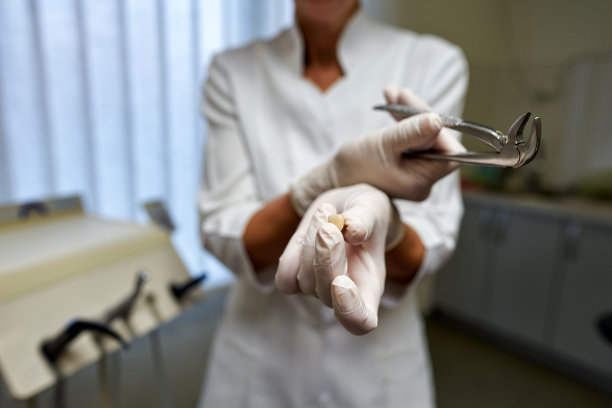Summary: Extracting a tooth can seem daunting, yet it can be a crucial aspect of ensuring overall dental health. From alleviating pain and preventing further complications to improving future oral care strategies, tooth extraction serves multiple beneficial purposes. This article delves into the vital reasons behind tooth extraction in relation to oral health, elaborating on its necessity in managing dental aesthetics, maintaining gum health, and fostering effective long-term oral hygiene practices. Understanding these aspects equips individuals with the knowledge needed to make informed decisions about their dental health and future care measures.
1. Relief from Dental Pain and Discomfort

Tooth extraction often serves as a necessary solution for individuals experiencing severe dental pain. This discomfort can arise from various issues, including cavities, infections, or irreversible damage. In many cases, the pain can significantly disrupt daily activities, leading to a decreased quality of life. By opting for tooth extraction, patients can often find immediate relief, allowing them to return to their normal routines free from the burden of relentless pain.
Moreover, lingering dental pain may signal underlying issues that could worsen if left untreated. For instance, dental infections can spread to surrounding teeth and gum tissues, leading to more severe complications. By removing the problematic tooth, one not only alleviates immediate discomfort but also prevents potential health dangers associated with untreated dental infections.
In summary, the relief from dental pain achieved through extraction can greatly enhance an individuals well-being. This improved sense of comfort and quality of life is one of the primary reasons why tooth extraction is a crucial consideration in dental health.
2. Preventing Further Dental Complications
Tooth extraction can play a pivotal role in preventing a range of dental complications. When a tooth deteriorates beyond repair, leaving it in place can cause what is known as a domino effect on surrounding teeth. This can lead to misalignment, exacerbation of decay, and even tooth loss in adjacent areas. By extracting the problematic tooth, patients can effectively halt this cycle and safeguard their remaining teeth.
Additionally, compromised teeth can contribute to the development of gum diseases. Bacteria can accumulate around an infected or damaged tooth, leading to conditions such as gingivitis or periodontitis. By removing such teeth, individuals take an essential step in maintaining gum health and minimizing the risk of periodontal disease.
Preventing further dental issues through extraction not only preserves existing teeth but also takes proactive measures towards long-term oral health. This foresight can lead to fewer dental visits and less invasive treatments down the line, solidifying why extraction remains a valid course of action.
3. Improving Future Oral Care Strategies
Another substantial advantage of tooth extraction is its positive impact on future oral care strategies. After a tooth is extracted, many individuals find it easier to maintain oral hygiene. Crowded or overlapping teeth can make brushing and flossing challenging, often resulting in inadequate cleaning and care. By removing problematic teeth, users can simplify their routine and improve their overall oral hygiene practices.
A clean, well-aligned dental structure promotes better oral health and hygiene compliance. Patients can gain access to all their teeth, reducing the likelihood of plaque buildup, cavities, and gum disease. Thus, extracting a problem tooth often leads to a more manageable and effective oral care regimen.
Furthermore, undergoing extraction can serve as a pivotal turning point, offering patients the motivation needed to commit to better oral care habits. Many individuals feel inspired to maintain their dental health proactively after tooth extraction, leading to significant long-term benefits.
4. Enhancing Aesthetic Considerations
Aesthetic concerns play an important role in the decision-making process surrounding tooth extraction. Damaged, discolored, or misaligned teeth can negatively affect an individuals confidence and self-image. By addressing these aesthetic issues via extraction, a person can pave the way for future restorative dentistry, such as dental implants or bridges, that can enhance their overall appearance.
Moreover, a healthy smile can positively influence social interactions and experiences. Individuals often feel more empowered and willing to engage with others when they have a vibrant, aesthetically pleasing smile. Therefore, the decision to extract unsightly or problem teeth can contribute to improved self-esteem and social well-being.
Ultimately, the aesthetic aspect of tooth extraction signifies its multifaceted importance—it is not merely a health-related decision but also one that can enhance a persons quality of life and interpersonal experiences.
Summary:
In conclusion, extracting a tooth is an essential consideration for promoting overall dental health. From relieving pain and preventing further complications to improving hygiene practices and aesthetic outcomes, the benefits are substantial and multifaceted. By understanding the significance of tooth extraction, individuals can make informed decisions that support their long-term oral care.
This article is compiled by Vickong Dental and the content is for reference only
Vickong Dental
Vickong Dental is a large medical group established in Hong Kong in 2008 by professors from well-known medical universities in Guangdong and Hong Kong, as well as medical doctors from key national '985' universities (including Master's supervisors and senior professors). The chain of branches brings together expert dentists with PhDs and Master's degrees from Hong Kong and Mainland China, committed to providing high-quality dental treatment.
"Vickong Dental Practices the University Motto of 'Healing and Serving Society,' with a Stable Operation for Sixteen Years. It Has Been honored with Hong Kong Enterprise Leaders's Choice,' and is a Global Trusted Implant Center for the Nobel Implant System. Recommended by Hong Kong Metro Broadcast and Guangdong Television, it Serves Customers from Over Thirty Countries and Regions, Gaining the Trust and Favor of Citizens from the Guangdong-Hong Kong-Macau Greater Bay Area and Surrounding Cities.

Thousands of customers' unanimous praise
The most recognized and highly recommended dental service by customers in the Guangdong-Hong Kong-Macau Greater Bay Area
We Ensure You Receive Detailed Care and Attention Here
Hong Kong standards, Shenzhen prices, Your Trusted English-speaking dentists

Vickong Dental Medical-Grade Instrument Disinfection Process
Vickong Dental Medical-Grade Instrument Disinfection Process

Vickong Dental Chain: A Warm and Comfortable Environment for Treatment






Appointment Hours

Q&A
Why choose Vickong Dental?
Vickong Dental practices the university motto 「Medicine to Benefit Society」, with each branch bringing together highly qualified dentists with doctoral and master’s degrees from Hong Kong and the Mainland, and has maintained seventeen years of steady operation。Recipient of 「2024 Hong Kong Enterprise Leaders Brand」, 「2025 Hong Kong Enterprise Leaders Brand」, a Nobel Biocare Global Trusted Implant Center, and a brand recommended by Metro Radio Hong Kong and Guangdong TV。
To date, we have served customers from more than thirty countries and regions,earning exceptionally high word-of-mouth recognition and trusted recommendations from residents across the Guangdong-Hong Kong-Macao Greater Bay Area and surrounding cities
We have eight major branches in Zhuhai、Shenzhen,and a consultation and service assurance center in Hong Kong,so you can book a free consultation at any time for any questions,which is very reassuring.
If I do not accept the quotation after the CT scan, will I be charged??
No! As long as the actual treatment has not started, you will not be charged any fees.
Will there be any additional charges during the treatment process?
No, there won’t be any additional charges. Before treatment begins, we will clearly explain the treatment plan and its corresponding fees. Only after the patient agrees and signs the consent form will we proceed with the dental service.
Can I pay in Hong Kong dollars?
Yes. Vickong Dental accepts payment in Hong Kong dollars. The amount will be converted based on the exchange rate of the day, and the applicable rate will be clearly communicated to you in advance.
Can I reschedule my appointment at any time?
Yes. Please contact us via **WeChat** or **WhatsApp** as early as possible, providing your original appointment time and details, along with your preferred new date and time slot for rescheduling.













